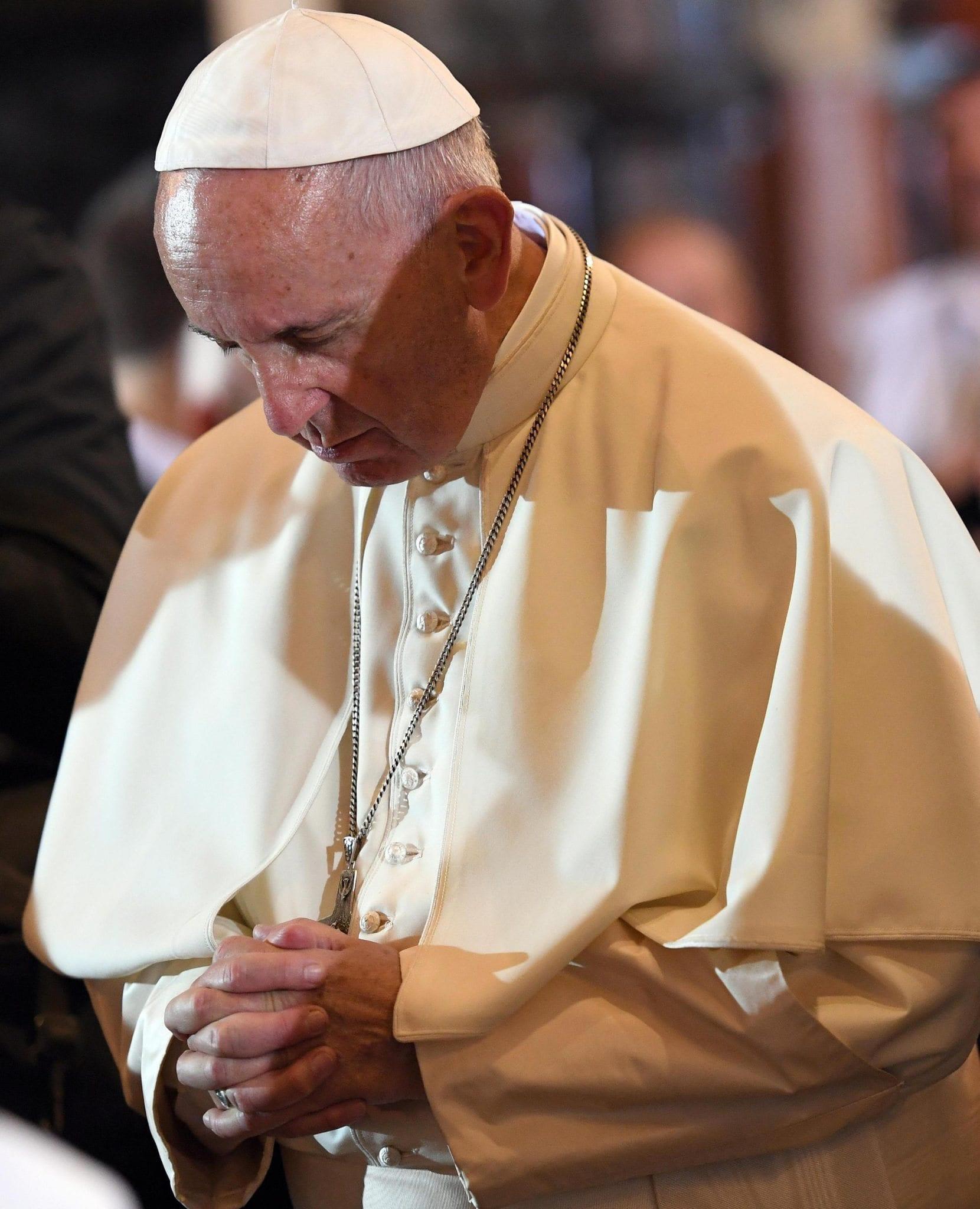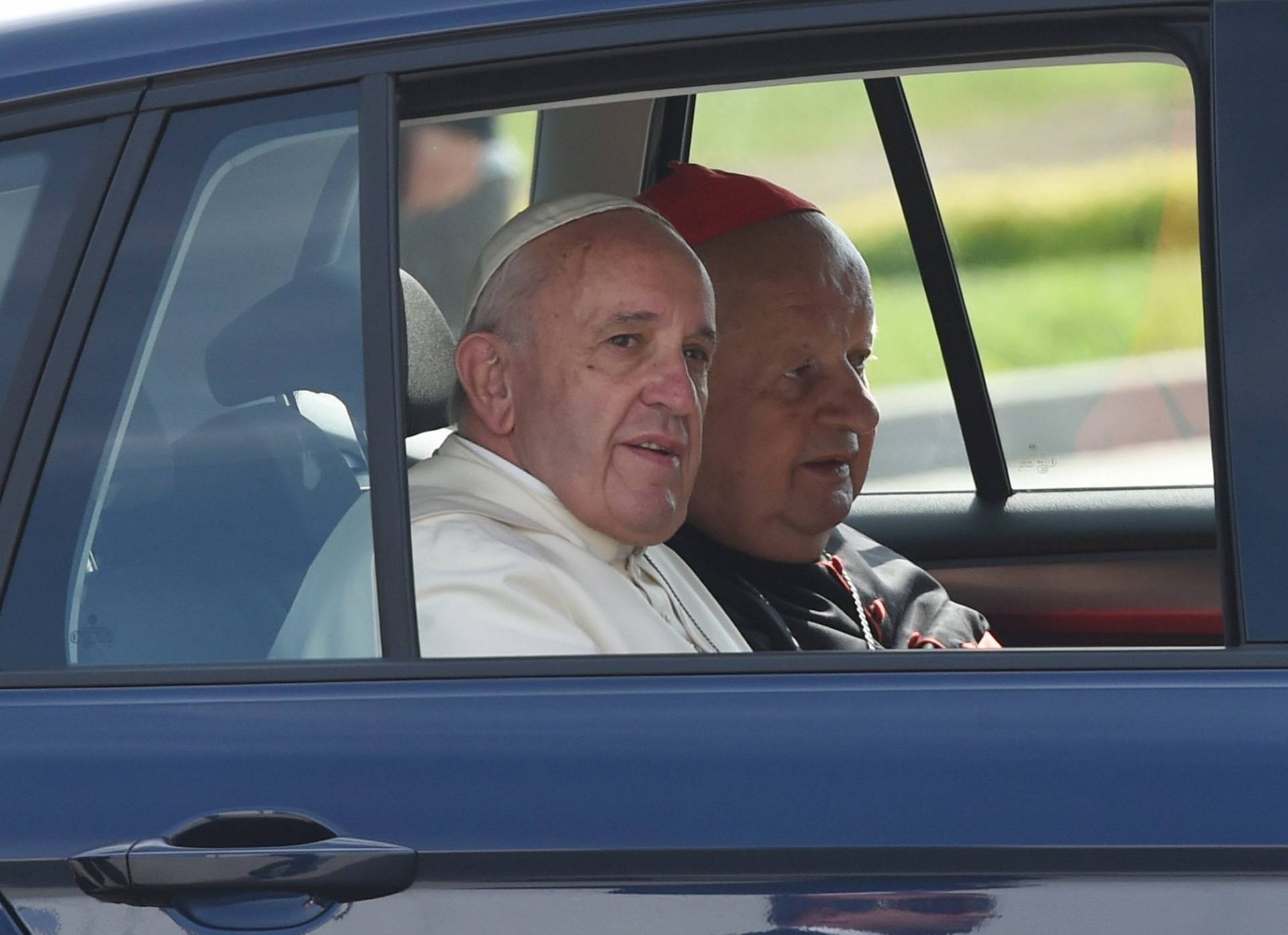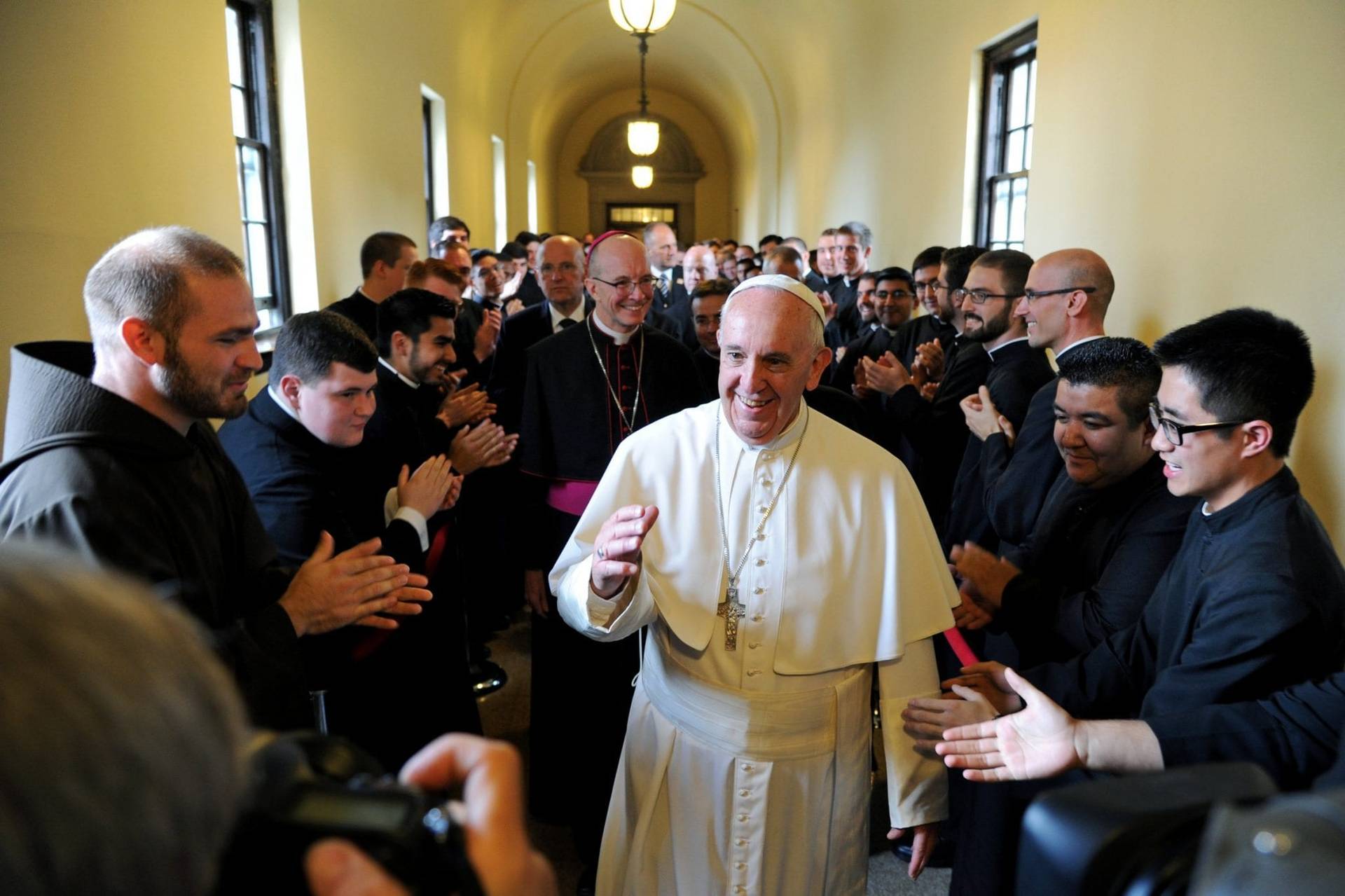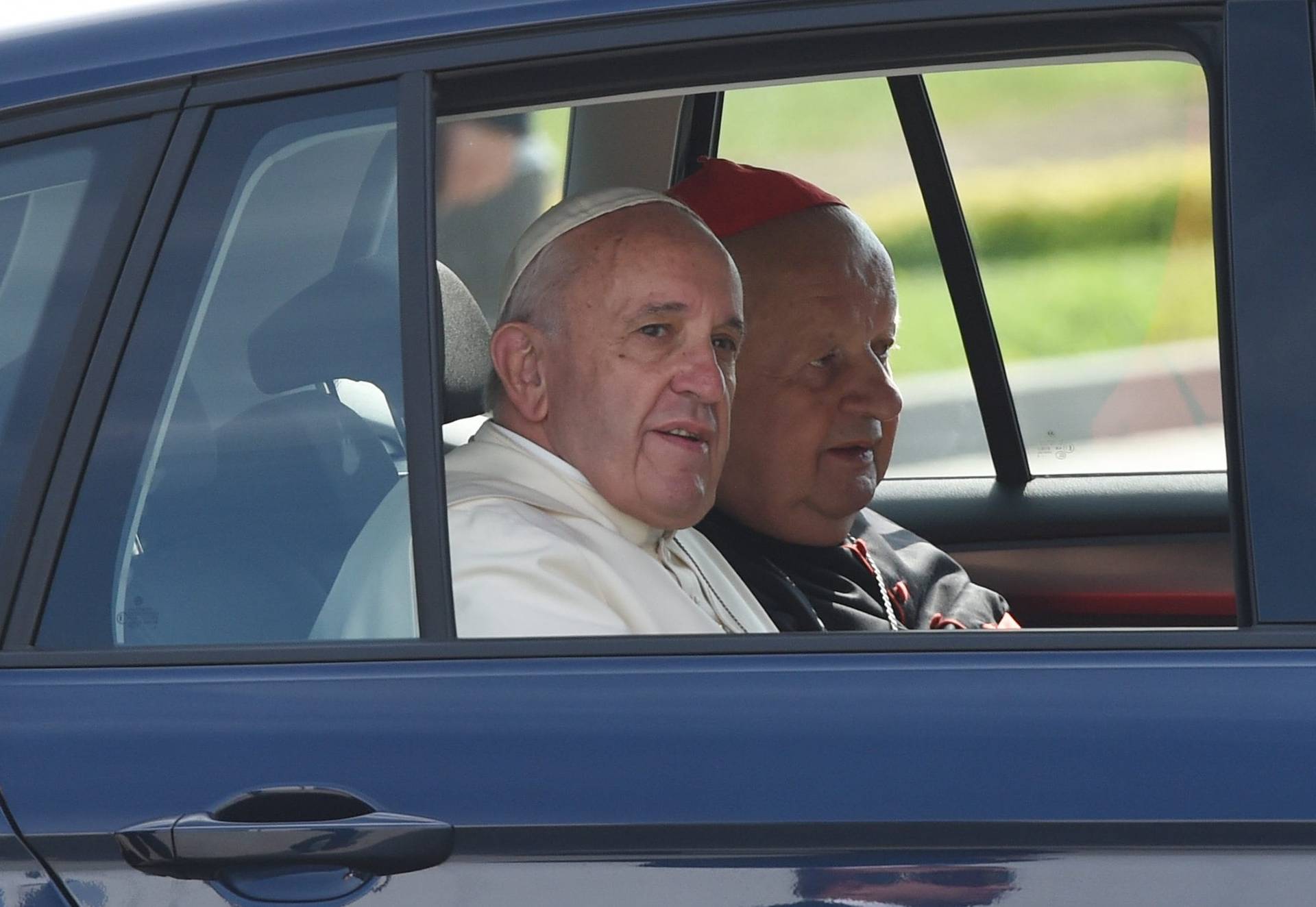KRAKOW, Poland—Pope Francis passed the first 24 hours of his visit to the land of St. John Paul II by drawing crowds and making waves everywhere he went, beginning with a short impromptu address to journalists travelling with him, the official welcoming ceremony, a one-hour Q&A with the local bishops, and celebrating Mass for an estimated 200,000 people.
But alongside those “big events” the pope had several other activities, some scheduled, some a product of his trademark improvisation.
For instance, on Wednesday night, after addressing politicians and the Catholic hierarchy, Francis had the first opportunity to meet with the youth, the real reason behind his July 27-31 visit to Poland. He met them twice, once virtually, and once by speaking from arguably the most famous window in this country.
He first responded to three questions posed to him by some of the more than 15,000 Italian young women and men gathered in the St. John Paul II shrine in Krakow via live video.
One question was on overcoming fear after a train accident that killed 23 people earlier in the month, one about forgiveness after an attempted suicide driven by bullying, and one on spreading peace in a world full of hatred.
To the first question, he asked the young Italian woman not to become “neurotic” by allowing fear to overcome happiness and courage, even when faced with painful situations.
“Wisdom, learning to be a wise man, a wise woman, is this: to carry forward [both] the nice and ugly things of life,” Francis told her.
“How many young people like you are incapable of living with the happiness of beautiful things, preferring to give up, fall under the domination of drugs, or allowing themselves to be beaten down by life? At the end, the game is like this: or you win, or life defeats you!” he said.
Andrea, a 15-year-old girl who arrived in Italy when she was nine from another country told Francis about her experience in the Italian school system, where her peers ridiculed her lack of command of the language and harassed her on social media, to the point in which she tried to commit suicide.
Upon surviving her attempt to kill herself, she told the pope, she realized that it wasn’t her who had the problem, but those going after her. “How do I do to forgive these people?” she asked.
“You speak of a problem that is very common among the kids, and also among those who aren’t kids: cruelty,” Francis told her.
Cruelty, he said, is a human attitude which is the base of all the wars. “The cruelty that doesn’t allow the other to grow, the cruelty that kills the other, that kills the good name of another person,” he said.
Francis then told Andrea that there’s a need to fight against the “terrorism of rumors” and insults.
“Is it possible to fully forgive? It’s a grace we need to ask the Lord for. We, on our own, can’t forgive: we make an effort, you did it; but it’s a grace that the Lord gives us, forgiveness, forgiving the enemy, forgiving who was wounded you, done you wrong,” he said.
The third question came from a group of pilgrims who almost pulled out of WYD because of the recent terrorist attacks in Munich, Germany, which occurred while they were en route to Poland.
“After everything that’s happened to us, after the fear, we asked ourselves and we want to ask you: how do we, the youth, transmit peace in this world so full of hatred?” one of the kids asked.
“Peace builds bridges, hatred builds walls,” Francis told them. “You have to choose, in life: Do I build bridges or walls. Walls divide and hatred grows: when there’s division, hatred grows.”
Minutes later, he greeted thousands of pilgrims who had gathered at Franciszkańska 3, the home of the local archbishop, where Francis is staying during the visit. Here, from the same window from where St. John Paul II and emeritus Pope Benedict XVI had done before him, he addressed the crowd.
“You must do your duty and make chaos all night. Show your Christian joy, the joy the Lord gave you to be in the community who follows Jesus,” Francis said.
From here, he also remembered Maciej Szymon Cieśla, a young Polish graphic designer who worked as a volunteer for WYD and died of cancer on July 2, mere weeks before the event he’d work for tirelessly began.
On Thursday, before heading to the Monastery of Jasna Góra, where he presented a golden rose to the Black Madonna of Częstochowa, he visited Cardinal Franciszek Macharski, 89, former archbishop of Krakow, who’s currently in the hospital, gravely ill.
Some local observers believe it’s possible Macharski, who succeeded St. Pope John Paul II as Archbishop of Krakow in 1978.
Also on his way to the Monastery, 90 miles north of Krakow, he made a stop at the Church of Saints John the Baptist and John the Evangelist, to pray at the tomb of Blessed Zofia Czeska, founder of the Sisters of the Presentation of the Blessed Virgin. Here he met with 30 sisters of the community, and with several students.
Even before leaving Rome, Francis’ visit was already full of small details particularly towards those who couldn’t make the trips to Poland, from a video he sent to the youth gathered in the diocese of Brownsville, Texas, to praying with a group of cancer patients at the tomb of St. John Paul II, under Rome’s St. Peter’s Basilica.














